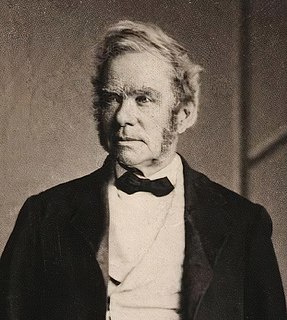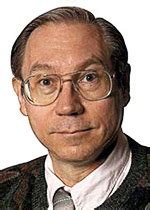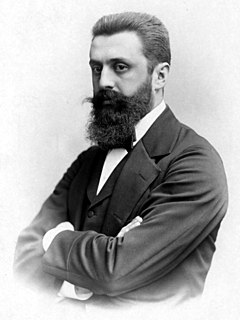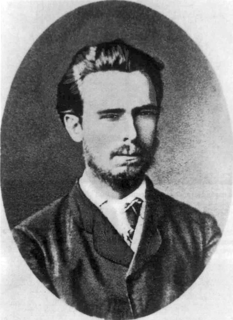A Quote by Andrew Jackson
Private property is held sacred in all good governments, and particularly in our own. Yet shall the fear of invading it prevent a general from marching his army over a cornfield or burning a house which protects the enemy? A thousand other instances might be cited to show that laws must sometimes be silent when necessity speaks.
Related Quotes
What a pity it is that our Congress had not known this discovery, and that Alexander Hamilton’s projects of raising an army of fifty thousand Men, ten thousand of them to be Cavalry and his projects of sedition Laws and Alien Laws and of new taxes to support his army, all arose from a superabundance of secretions which he could not find whores enough to draw off! and that the same vapours produced his Lyes and Slanders by which he totally destroyed his party forever and finally lost his Life in the field of Honor.
Conscience is the most sacred of all property; other property depending in part on positive law, the exercise of that being a natural and unalienable right. To guard a man's house as his castle, to pay public and enforce private debts with the most exact faith, can give no title to invade a man's conscience, which is more sacred than his castle, or to withhold from it that debt of protection for which the public faith is pledged by the very nature and original conditions of the social pact.
Why not include a provision that everybody shall, in good weather, hunt on his own land and catch fish in rivers that are public property and that Congress shall never restrain any inhabitant of America from eating and drinking, at seasonable times, or prevent his lying on his left side, in a long winter's night, or even on his back, when he is fatigued by lying on his right.
It must be assumed and established as a principle, that the right of private property must be regarded as sacred. Wherefore, the law ought to favor this right and, so far as it can, see that the largest possible number among the masses of the population prefer to own property.... But if the productive activity of the multitude can be stimulated by the hope of acquiring some property... , it will gradually come to pass that, with the difference between extreme wealth and extreme penury removed, one class will become the neighbor to the other.
What I do know is, in little more than 30 years, we have gone from a nation where the “quiet enjoyment” of one’s private property was a sacred right, to a day when the so-called property “owner” faces a hovering hoard of taxmen and regulators threatening to lien, foreclose, and “go to auction” at the first sign of private defiance of their collective will ... a relationship between government and private property rights which my dictionary defines as “fascism.”
We must expropriate gently the private property on the state assigned to us. We shall try to spirit the penniless population across the border by procuring employment for it in the transit countries, while denying it employment in our country. The property owners will come over to our side. Both the process of expropriation and the removal of the poor must be carried out discretely and circumspectly. Let the owners of the immoveable property believe that they are cheating us, selling us things for more than they are worth. But we are not going to sell them anything back.
For a man's property is not at all secure, though there be good and equitable laws to set the bounds of it, between him and his fellow subjects, if he who commands those subjects, have power to take from any private man, what part he pleases of his property, and use and dispose of it as he thinks good.
The Revolutionist is a doomed man. He has no private interests, no affairs, sentiments, ties, property nor even a name of his own. His entire being is devoured by one purpose, one thought, one passion - the revolution. Heart and soul, not merely by word but by deed, he has severed every link with the social order and with the entire civilized world; with the laws, good manners, conventions, and morality of that world. He is its merciless enemy and continues to inhabit it with only one purpose - to destroy it.
Therefore if mine enemy hunger, let me feed him; if he thirst, let me give him drink. Now in order to do this, (1) We must see good in that, in which other men can see none. (2) We must pass by those injuries that other men would revenge. (3) We must show we have grace, and that we are made to bear what other men are not acquainted with. (4) Many of our graces are kept alive, by those very things that are the death of other men's souls.... The devil, (they say) is good when he is pleased; but Christ and His saints, when displeased.
To bring the matter to one point, Is the power who is jealous of our prosperity, a proper power to govern us? Whoever says, No, to this question, is an independent, for independency means no more than this, whether we shall make our own law, or, whether the king, the greatest enemy which this continent hath, or can have, shall tell us there shall be no laws but such as I like.

































